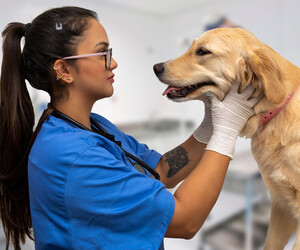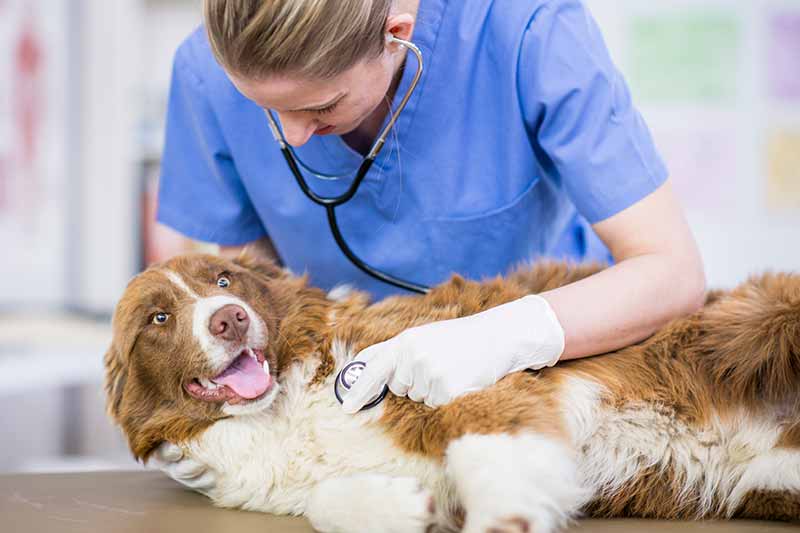Maintain Your Pet Healthy And Balanced with Routine Pet Health Checkups from Trusted Vets
Maintain Your Pet Healthy And Balanced with Routine Pet Health Checkups from Trusted Vets
Blog Article
Inoculation Standards From Your Trusted Veterinarian
Vaccination guidelines provided by your relied on vet play an essential role in safeguarding your animal's wellness and wellness. Core vaccines are fundamental for all pets, while non-core vaccinations can be tailored to environmental exposures and certain way of livings. Comprehending the subtleties of vaccination schedules, which begin as very early as 6 to eight weeks, is necessary for optimal security. Additionally, addressing common false impressions surrounding vaccines can further improve pet dog proprietors' self-confidence in these safety nets. As we explore these critical elements, it ends up being increasingly clear why normal appointments with your veterinarian are vital for notified decision-making.

Importance of Vaccinations
Vaccinations play a pivotal function in protecting pet dogs versus a variety of preventable diseases. By boosting the immune system to identify and deal with certain pathogens, injections substantially minimize the incidence of transmittable conditions that can influence a pet dog's health and wellness and longevity. Not just do inoculations protect private animals, yet they also add to herd immunity, thereby lowering the overall prevalence of diseases in the pet populace.
Prompt inoculations help to alleviate the spread of illness such as rabies, parvovirus, and distemper, which can have severe effects for both humans and pet dogs. Moreover, inoculations are typically a requirement for boarding centers, grooming services, and dog parks, making them important for those who desire to socialize their animals.

Core Vaccinations for Pet Dogs
While the specific vaccination requirements of animals can differ based on specific variables, core injections are universally recommended to protect versus the most usual and severe illness (Emergency Vet). Core injections are those deemed essential for all family pets, despite their way of life or geographic area, as they protect versus potentially deadly and very infectious ailments
For dogs, the core injections include those for canine distemper, parvovirus, adenovirus (hepatitis), and rabies. Adenovirus can result in liver disease, while rabies is a zoonotic condition that presents a threat to both pet dogs and human beings.
In felines, core injections incorporate feline panleukopenia, feline calicivirus, feline herpesvirus (rhinotracheitis), and rabies. Feline panleukopenia is an extremely contagious viral condition that impacts the immune system and intestinal tracts. Calicivirus and herpesvirus are major factors to upper breathing infections in felines, while rabies stays an essential issue for public health and wellness.
Seek advice from with your vet to ensure your pet dogs receive their core vaccinations on schedule.
Non-Core Vaccines Explained
Non-core vaccinations are customized to deal with details dangers connected with an animal's exposure, setting, and way of life to specific diseases. Unlike core vaccines, which are widely recommended for all pet dogs, non-core injections are considered based on specific scenarios. These vaccinations are especially crucial for animals that might come across distinct microorganisms due to their geographical area, travel behaviors, or tasks.
Examples of non-core vaccines consist of those for Bordetella bronchiseptica, which is connected to kennel cough, and Lyme disease, brought on by ticks. Pet dogs that regularly engage with other pets, such as those in boarding facilities, canine parks, or brushing atmospheres, might gain from Bordetella inoculation. If you live in an area where Lyme condition is prevalent, immunizing against this condition can be a prudent option for outdoor-loving dogs.
Other non-core vaccinations may consist of those for leptospirosis, canine flu, and feline leukemia, depending on the certain risk aspects existing. It is crucial to have a thorough conversation with your vet about your family pet's way of living and the potential requirement for these vaccinations, ensuring a tailored inoculation technique that ideal protects your furry good friend.
Vaccination Set Up Overview

As pet dogs mature, it is crucial to abide by the recommended booster vaccinations. Pet Vaccinations. For grown-up animals, core vaccines are commonly provided every one to 3 years, relying on the specific injection and neighborhood regulations. Non-core vaccines may be encouraged based on way of life aspects and local condition frequency, necessitating a customized technique
Normal vet exams are essential for upgrading vaccination schedules. Your vet can provide support on the most proper look at here now booster shots for your family pet, factoring in age, health status, and environmental risks. By staying positive and notified, animal owners can ensure their furry buddies dig this get timely and effective vaccinations, thus securing their health and wellness and wellness throughout their lives.
Typical Misconceptions Regarding Injections
Misconceptions concerning pet vaccinations can cause complication and reluctance among animal owners regarding the booster shot process. One common myth is that vaccinations are unneeded for interior animals. While it holds true that indoor pet dogs deal with reduced dangers, they are not entirely immune to diseases, as virus can be presented through numerous ways, including human clothes and other pet dogs.
One more misunderstanding is that vaccines can create the conditions they aim to stop. Actually, the majority of injections contain suspended or attenuated microorganisms, which can not cause disease in healthy animals. Some pet dog owners additionally think that their animals need to not be vaccinated if they are currently healthy; nonetheless, vaccinations are an aggressive measure that aids stop the onset of health problem.
Furthermore, lots of family pet proprietors are afraid that vaccines will lead to long-term health problems. The advantages of inoculation-- shielding pet dogs from possibly lethal diseases-- far outweigh the threats.
Verdict
In recap, adherence to vaccination standards is critical for making sure the health and longevity of family pets. Eliminating typical misconceptions surrounding vaccinations better reinforces the importance of educated decision-making in pet dog care.
Not just do vaccinations secure individual pets, however they additionally contribute to herd resistance, thereby reducing the general frequency of diseases in the pet populace.
False impressions about family pet inoculations can lead to complication and unwillingness amongst pet dog owners relating to the booster shot his comment is here procedure. While it's real that indoor family pets encounter lower threats, they are not completely immune to illness, as virus can be presented via various ways, consisting of human apparel and various other pet dogs.
Some animal owners likewise think that their pet dogs must not be vaccinated if they are currently healthy and balanced; however, vaccinations are an aggressive measure that helps avoid the beginning of ailment.
The advantages of inoculation-- safeguarding animals from potentially serious illness-- much surpass the threats.
Report this page